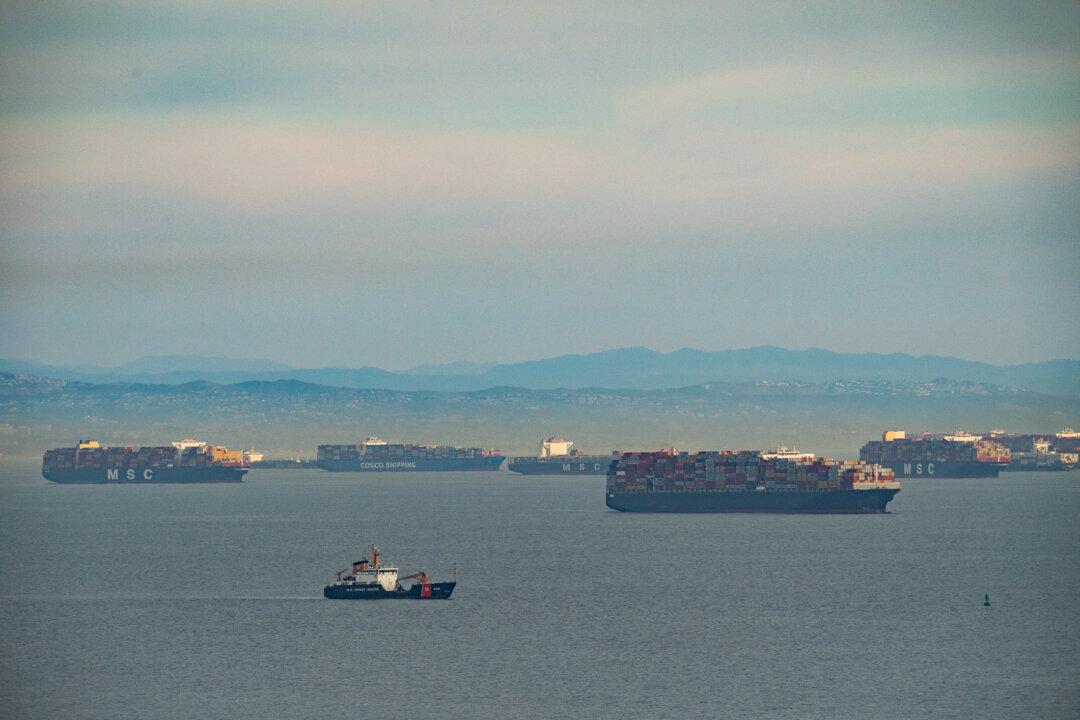LOS ANGELES—The ports of Los Angeles and Long Beach will implement a new queuing process requiring ships to wait for an available berth approximately 150 miles offshore.
Effective Nov. 16, each vessel will be assigned a place in the arrival queue based on their departure time from their last port of call.





